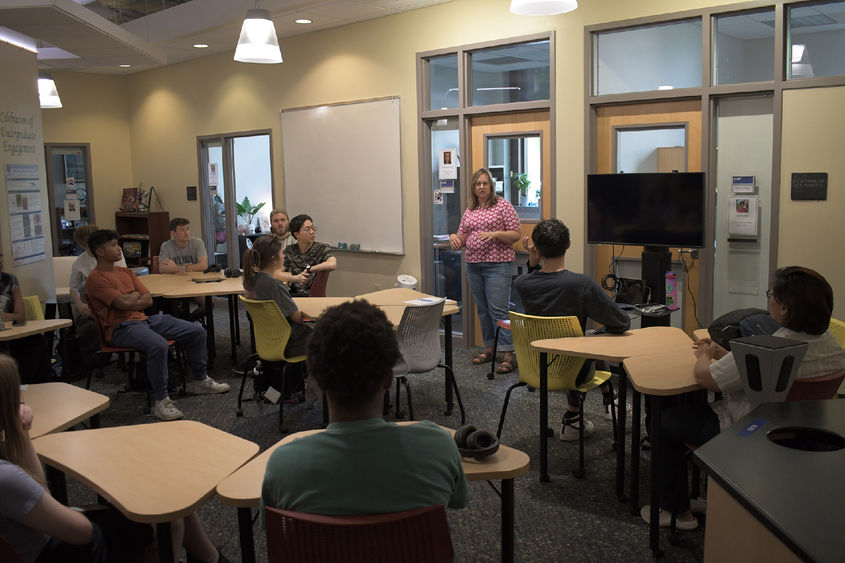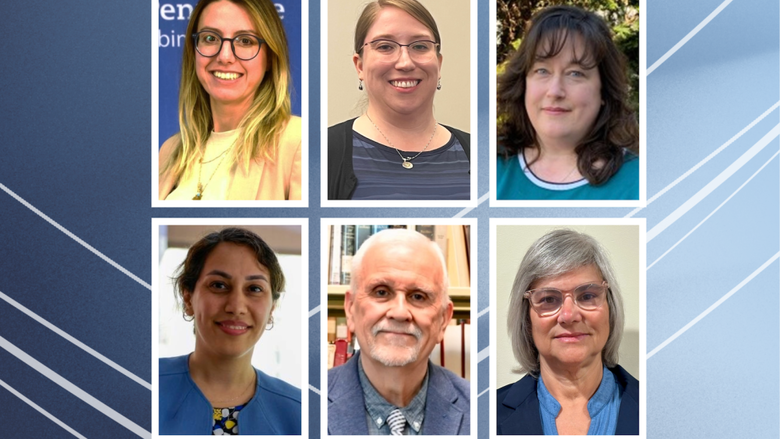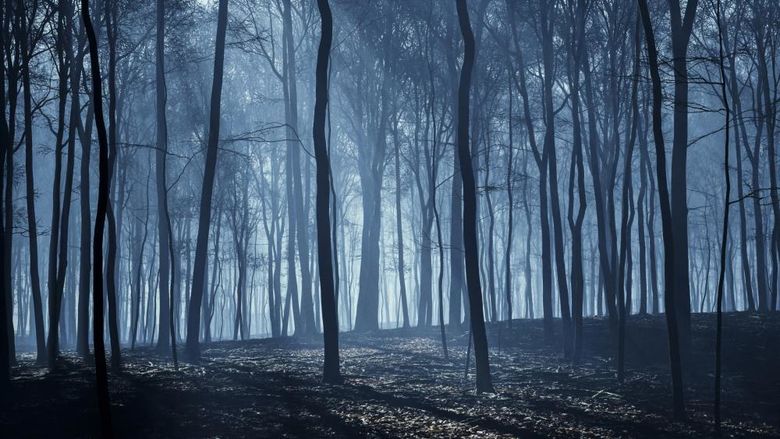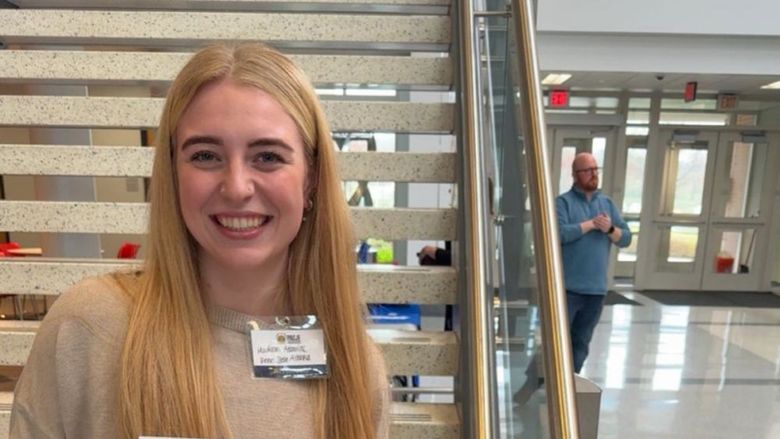
Karen Marosi, director of student engagement in EMS, talks to students participating in the summer MCREU program.
UNIVERSITY PARK, Pa. — Conducting research as an undergraduate can be daunting, but Sierra Wright and a group of Penn State students from across the state jumped in feet first this summer through the Multi-Campus Research Experience for Undergraduates (MCREU).
“At first I was a little scared because I wasn’t sure I could do it,” said Wright, a rising second-year student at Penn State Altoona. “But since being here this summer, I’ve realized a lot of the doubts I had in myself were proven not true. I’ve realized I can do a lot more than I thought, even just in eight weeks.”
The MCREU program supports Commonwealth Campus students, like Wright, as they conduct research during the summer months under the guidance of two Penn State faculty members — one from their home campus and another based at the University Park campus.
“The MCREU program transforms students' education by providing invaluable hands-on experience and fostering essential professional connections,” said Erin Hostetler, director of student research and engagement at the Penn State College of Engineering. “These immersive experiences not only enhance students' technical skills but also forge impactful relationships across campuses and colleges, creating lasting value for everyone involved.”
Karen Marosi, director of student engagement in the College of Earth and Mineral Sciences, said the program simultaneously serves as a transition to get students interested in research and graduate school, and a way to provide a meaningful professional experience to students who may not have had that opportunity prior to coming to University Park.
Wright spent the summer on the University Park campus, working with Antonia Hadjimichael, an assistant professor of geosciences, and Gabriela Gesualdo, a postdoctoral scholar in the College of Earth and Mineral Sciences’ Department of Geosciences, studying flash droughts.
Flash droughts develop rapidly — potentially within just a few weeks — instead of the slow, gradual onset typically associated with droughts. These events, which may be exacerbated by the changing climate, can have major impacts on communities and agriculture, Wright said.
“It’s very similar to a regular drought, but there is a very rapid onset,” she said. “It can happen anywhere, even places where there could have been recent floods. Then the next month, it’s completely dry. It can be really devastating. And they are incredibly hard to predict.”
Flash droughts are an emerging field of study without an abundance of long-term data, Wright said. Her job was to assist Gesualdo by collecting data and news articles from communities to provide evidence of potential flash droughts.
In addition to the support from her faculty mentors, Wright said collaborating with her peers in the MCREU program helped her through the summer, from conducting her research to developing her final video and poster presentation. The students presented their work during a virtual symposium in July.
“We can talk about what we are working on and share what we know,” Wright said. “We all have different knowledge — one of us had already written a literature review. Some of us had made poster presentations, but a lot of us hadn’t. So we were able to come together, talk about what we are going through and share our knowledge.”
Fangxin Qian participated in the MCREU program last year as a rising third-year student transitioning from Penn State Abington to the University Park campus. Now a rising senior in chemical engineering, she participated again this year.
Qian said the program helped ease her transition to the University Park campus, introducing her to other students and ultimately the research group of Seong Kim, distinguished professor of chemical engineering in the College of Engineering.
“It helped introduce me to my research group,” Qian said. “They are very patient about explaining details and very supportive. It has made my research experience much easier.”
This summer, Qian helped a visiting professor set up a semiconducting gas sensor as part of her MCREU project.
“I had never actually set up equipment in the lab,” she said. “Normally everything is set up already and all I need to know is how to use the equipment. But I was able to learn how each piece of software works with each part of the equipment. it’s been a great experience.”
Joseph Wolf, a senior studying energy engineering, also participated in the MCREU for the second time this summer. He previously attended as a rising second-year student at Penn State York.
He said his experience working in the lab of Feifei Shi, assistant professor of energy engineering in the College of Earth and Mineral Sciences’ John and Willie Leone Family Department of Energy and Mineral Engineering, transformed how he envisioned his career.
“The impact has completely changed the trajectory of what I was planning to do,” Wolf said. “I wasn’t considering research at all. I was planning to get a four-year degree and go work in industry. But I realized I really like doing research and I want to continue doing it as a career.”
Wolf spent the summer working on a project to extract lithium from geothermal brine, potentially creating a more sustainable method for extracting an important resource from a readily available waste stream.
Reflecting on all he has learned so far, Wolf encouraged other students to seek out undergraduate research.
“You never know what you might be interested in until you try it,” he said. “Especially if it’s your first time doing research. And if you are nervous, having the support you get through the program calms a lot of the nerves.”
Patricia Craig
Marketing and communications, Earth and Mineral Sciences




